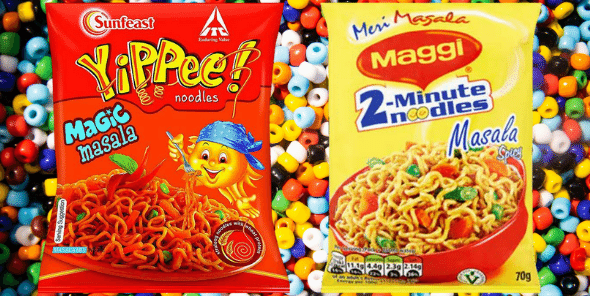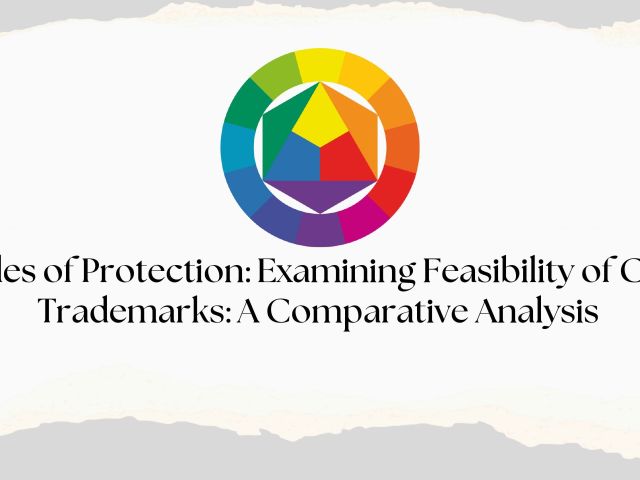With the growth of consumerism and brand loyalty, the trademark has become an important asset for any company, since it enables one to identify and distinguish between one company’s goods or services with another. It then comes as no surprise when popular phrases used by companies in advertising are also registered as trademarks. However, what happens when two companies claim trademark rights over one similar phrase? Such a dispute arose between the two Fast-moving Consumer Goods (FMCG) giants of India, ITC, and Nestle.
Background
Both ITC and Nestle own brands of instant noodles. ITC owns Yippee! Noodles while Nestle owns Maggi Noodles. In 2013, ITC filed a suit against Nestle over the use of their terms “Magical Masala”. According to ITC, this amounts to the action of passing off their goods as Nestle’s since ITC’s Yippee! Noodles also use a highly similar phrase on its packaging, “Magic Masala”.
To its credit, ITC claims prior use over the phrase ‘Magic Masala’ since 2010. Nestle, on the other hand, started using the phrase ‘Magical Masala’ only since 2013. According to ITC, its mark has earned distinctiveness as from the period of 2010 to 2013, the mark was exclusively associated only with ITC’s products. When Maggi adopted a similar mark on its goods, it committed action of passing off, according to ITC. At the interim stage, the judge granted an injunction against
The Judgement
On 10th June 2020, J. C. Saravanan delivered the 112-page judgment which surprisingly did not grant trademark rights over the phrases to either of the parties. The following are the court’s holdings.
Firstly, the court stated that the issue of deceptive similarity claimed by ITC stands no ground. The header of both brands (‘ITC’s Yippee!’ and ‘Nestle’s Maggi’) clearly distinguishes between the two goods. The packaging of both products was also compared and the court noted the clear differences between the bright orange and red packaging of Yippee and the bright yellow packets of Maggi.
Secondly, on the claim of prior use of the impugned phrase, the court noted that neither Nestle nor ITC were the first users of the mark but it was PepsiCo’s Lay’s potato chips, which uses the mark in its ‘Magic Masala’ flavour. The court then concludes on this issue that ITC was inspired to use the phrase from other products in the food industry using the common words of ‘magic’ and ‘masala’.
Thirdly, the court dissipates the claim that ITC was the first to use the phrase “Magic Masala” in relation to instant noodles. It does this by placing reliance on the evidence shown by Nestle that its products have used the word ‘magic’ since 1986. At the same time, the court makes it clear that neither does Nestle have a claim to the mark by stating that the company was possibly inspired by the same factors which inspired ITC in the adoption of the phrase on its goods. Essentially, the court questioned granting trademarks rights over the use of the phrase to both parties by asserting that neither party can showcase a distinguishable claim to the use of the phrase.
Fourthly, the court discarded ITC’s claims to the mark by placing reliance on the evidence adduced by Nestle. The court noted on the basis of this evidence that ITC never actually intended to use the mark as a trademark but rather utilized it as a flavor descriptor. Yippee! Noodles’ other variants such as ‘Classic Masala’ and ‘Chinese Masala’, for example, do not utilize the phrase ‘Magic Masala’ in their packaging.
Finally, J. Saravanan held that the phrase ‘Magic Masala’ is descriptive, laudatory, and common to trade, whether it be taken individually and collectively. The Hon’ble Justice also noted that the expression of ‘Magic Masala’ cannot be said to have become so distinctive that it developed into a sub-brand in itself. In the words of the court,
“The word “Magic” is laudatory. It is incapable of being appropriated by the plaintiff (ITC). As such, no person can claim any monopoly over the said word “Magic” or “Magical” or their derivative as they are common to the trade. Therefore, it is incapable of being monopolized by any trader.”
The court also referred to section 9 of the Indian Trade Marks Act, 1999, which lists the absolute grounds for refusal of registration of a trademark. Sub-section 1(c), which prohibits the registration of generic marks, reads as below.
“…marks or indications which have become customary in the current language or in the bona fide and established practices of the trade, shall not be registered”.
Conclusion
In conclusion, the court held that the action of passing off, as claimed by ITC, does not lie in the present case. Though the words are similar to a great extent, neither party can claim trademark rights over its use as the words are common and descriptive in nature. Although long, the judgment has done a brilliant job of critically analyzing the evidence placed before the court. In essence, the judgment has reminded trademark owners that a weak mark cannot be registered as a trademark, even if the same is a sub-brand of a larger and popular brand but devoid of any distinctive meaning.
Bibliography
ITC Ltd. v. Nestle India Ltd., 2020 SCC Online Mad 1158.




